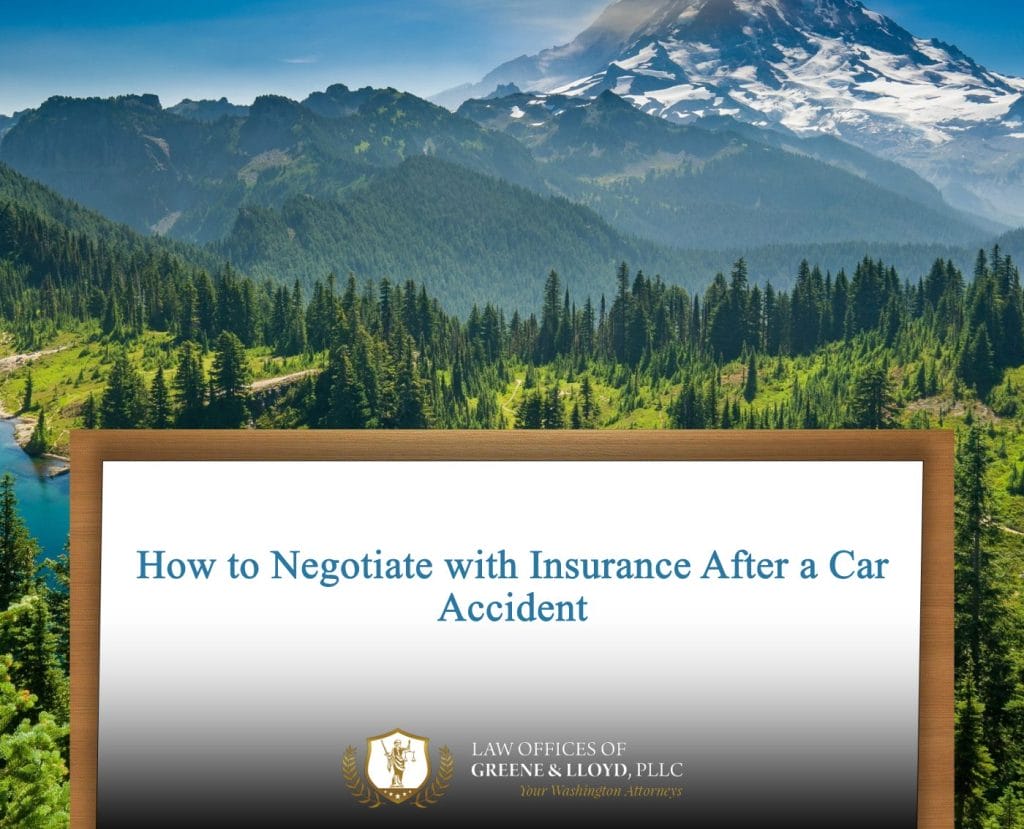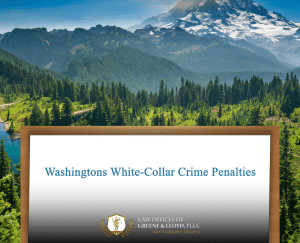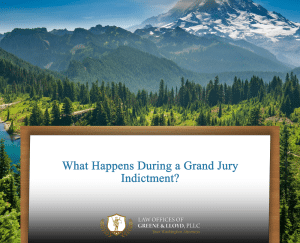## Mastering the Art of Negotiating with Insurance After a Car Accident
Negotiating with insurance after a car accident is an essential process that can significantly impact the financial recovery for individuals involved in these unfortunate events. Understanding how to successfully negotiate insurance settlements after an accident requires knowing the intricacies of the insurance claim process, effectively communicating your needs, and leveraging legal insights when necessary. This blog post will delve into the various aspects of this critical negotiation process, focusing on insights and strategies that can empower you to secure a fair settlement.
## Defining the Process of Negotiating Insurance Post-Accident
Negotiating insurance after an accident involves a systematic approach to communicate with your insurance company or the other party’s insurer to arrive at a settlement that compensates for damages and injuries. This usually starts with the filing of your claim, where you present all the relevant documentation, including accident reports, medical records, and any evidence demonstrating your claim validity. The insurance company will conduct its investigation, evaluating liability and assessing data to determine the specifics of the payout.
In this negotiation phase, it’s crucial to note that insurance adjusters are well-trained in minimizing payouts. Therefore, it is vital to have a clear understanding of your case’s value, encompassing medical expenses, lost wages, property damages, and emotional distress. This comprehensive knowledge will provide you with the leverage needed during negotiations, ensuring that you can articulate the damages sustained and the compensation you feel justified in receiving.
The duration of this negotiation can vary, as insurers may initially offer a settlement significantly lower than what you are entitled to. It can take multiple rounds of negotiation to arrive at an agreeable figure that reflects the true extent of your losses. Knowing how to navigate this process effectively can be a game changer in achieving a favorable outcome.
## The Importance of Understanding the Negotiation Process
Grasping the nuances of negotiating insurance claims after an accident is critical for several reasons. First, the financial implications of a car accident can be staggering, with costs accumulating from property damage, medical bills, and lost income. Subsequently, ensuring that you receive fair compensation is imperative for your financial recovery and overall stability.
Second, insurance companies often have their interests at heart, seeking to limit payouts to protect their bottom line. Therefore, understanding how to negotiate effectively with insurers ensures that you advocate for yourself and present a strong case. Knowledge about your rights and the insurance process empowers you to confront low-ball offers and engage in discussions about fair compensation.
Lastly, gaining insight into common insurance tactics can help you remain vigilant throughout negotiations. For example, insurers may attempt to minimize responsibility, question the legitimacy of your claims, or delay the process. Recognizing these strategies allows you to maintain focus and confidence in your negotiations.
## Legal Framework Surrounding Insurance Negotiations
The legal framework governing insurance negotiations after a car accident varies from state to state, impacting how claims are processed and how compensation is determined. In Washington State, where the Law Offices of Greene & Lloyd, PLLC operate, certain laws govern liability and insurance payouts, which are essential for anyone navigating the aftermath of an accident.
Washington follows a “comparative negligence” rule, which means that compensation may be reduced based on the degree of fault apportioned to each party involved in the accident. In this scenario, if you are found partially at fault, your compensation may be reduced accordingly. Understanding how these legal principles apply to your case is critical for preparing your negotiation strategy effectively.
Moreover, the statute of limitations for filing a personal injury claim in Washington is three years from the date of the accident. This timeframe influences how quickly you need to engage in negotiations to ensure that your rights are preserved. Familiarity with these legal nuances allows you to approach negotiations with a solid understanding of the potential outcomes and your standing.
## Illustrative Examples of Insurance Negotiation
Consider a scenario where a driver, Sarah, engages with her insurance company following a rear-end collision. After submitting her claim, she quickly receives an offer that barely covers her medical expenses. Knowing negotiation tactics, Sarah gathers documentation, including medical bills, repair estimates, and a detailed accident report. In her follow-up discussions, she confidently presents these documents, articulating why the initial offer does not sufficiently compensate her for her damages, and successfully secures a more favorable settlement.
Another example includes Tom, whose vehicle was side-swiped while parked. The insurance company recognized liability, but their initial settlement offer did not account for the car repairs or the loss of personal property inside the vehicle. Tom researched similar cases and collected evidence of the total cost involved. Equipped with this data, he effectively negotiated a higher offer than the original, reflecting the complete scope of his loss.
These real-world examples emphasize the importance of preparation, documentation, and assertive negotiation. Engaging effectively in negotiations can lead to better outcomes, enhancing the recovery experience for individuals trying to navigate their post-accident challenges.
## Effective Steps for Successful Negotiation
Successfully negotiating with insurance companies requires a strategic approach. Start by collecting all relevant documentation immediately after the accident. This includes photographs of the accident scene, witness information, medical reports, and estimates for vehicle repairs. Having a comprehensive file helps ensure that you have the evidence necessary to support your claim and demonstrates your preparedness.
Next, establish a clear understanding of your needs beforehand. Assess medical expenses, times lost from work, and any future therapy or treatment you may require. Consider also the emotional toll an accident can take on you, which may warrant compensation. By having a comprehensive view of your losses, you can justify your negotiation range confidently and effectively.
Finally, approach negotiations with a calm demeanor, focusing on facts and evidence instead of emotions. Insurance adjusters are trained to handle negotiations, and maintaining professionalism can be advantageous. If you feel overwhelmed, consider enlisting the help of a legal professional who can represent you during these discussions, thus ensuring you don’t inadvertently undervalue your claim.
## Avoiding Common Pitfalls in Negotiations
While negotiating insurance settlements post-accident, it’s crucial to navigate the negotiation landscape carefully. Common mistakes that individuals make include accepting the first offer without question or providing recorded statements without fully understanding their implications. Insurers may present initial settlements that may appear fair but often need to be much more comprehensive, leading to downfalls in your claim.
Another widespread error is failing to document injuries or losses accurately. This can result in an inability to support your claim effectively, leading to lesser payouts. Ensuring that every decision made post-accident is well-documented, including how injuries progress and how they affect your day-to-day life, is essential for a robust claim.
Lastly, relinquishing control of the negotiation process by becoming overly emotional or defensive can hinder your negotiation power. Remaining level-headed allows you to think strategically and respond to counteroffers effectively. Remember, negotiation is a rational process driven by data; emotional responses can complicate the discussion.
## Recognizing When Legal Counsel is Needed
Identifying the right moment to consult an attorney after a car accident can significantly impact the trajectory of your negotiation process. If you find that negotiations feel overwhelming or results are consistently falling short of your expectations, reaching out to a legal professional may help. Legal counsel can analyze your case, provide guidance on the value of your claim, and represent your interests in negotiations.
Additionally, if liability becomes contentious or the at-fault party refuses to accept responsibility, consulting an attorney can offer the legal backing needed to bolster your case. An attorney can also handle all communications with the insurance adjusters, protecting you from the pressure tactics commonly employed to limit payouts.
If your case involves extensive medical treatment or substantial damages, acquiring legal representation early in the process can facilitate smoother negotiations. Experienced legal professionals possess knowledge of past case settlements and understand insurance negotiation tactics, equipping you with the support necessary to achieve a favorable settlement.
## The Advantages of Engaging Legal Representation
Hiring legal representation when negotiating insurance settlements offers several critical advantages. First, skilled attorneys bring in-depth knowledge of the insurance claims process, enabling them to navigate the complexities of negotiating settlements adeptly. Their familiarity with liabilities, compensation laws, and relevant legal precedents can help ensure that you receive the compensation you deserve.
Moreover, attorneys can handle all aspects of the negotiation process, from preparing necessary documentation to communicating with the insurance adjusters. This eliminates the stress of direct negotiations, allowing you to focus on your recovery while your lawyer advocates on your behalf.
Additionally, possessing legal representation may lead to higher settlement amounts. Studies show that individuals who hire attorneys to negotiate their claims typically receive larger settlements compared to those who handle negotiations independently. The experience and ability of attorneys to present a compelling case frequently result in more successful outcomes during negotiations.
## How Law Offices of Greene & Lloyd, PLLC Can Assist You
At Law Offices of Greene & Lloyd, PLLC, we understand the intricate process involved in negotiating insurance settlements after car accidents. Our dedicated team is committed to guiding clients throughout Washington State through this often daunting experience, ensuring their rights are protected and that they receive the compensation they are entitled to.
With extensive knowledge of Washington State laws regarding car accidents and insurance claims, we assess each case thoroughly to develop tailored strategies that address our clients’ individual needs. From the initial consultation until the ultimate resolution of the case, clients can rest assured that we will handle all negotiations with insurance companies, easing their burdens and advocating fiercely on their behalf.
Having a trusted legal team by your side not only empowers you during negotiations but also increases your chances of a favorable outcome. At Greene & Lloyd, we pride ourselves on delivering compassionate, diligent representation to every client, ensuring they feel supported throughout their journey to recovery.
## FAQs About Insurance Negotiation After Car Accidents
## Additional Resources for Car Accident Negotiations
Utilizing additional resources can be instrumental when preparing to negotiate with insurance companies after a car accident. Many state governments provide access to guidelines surrounding insurance claims, which can serve as an informative tool. Understanding consumer rights and the legal expectations of insurers will enhance your negotiation strategy.
Online forums and support groups for accident victims can also offer valuable insights. Hearing from others who have navigated similar experiences can provide emotional support as well as practical tips for dealing with insurance negotiations.
Lastly, engaging with reputable resources such as the Washington State Bar Association can direct you to legal professionals experienced in personal injury and negotiations. These resources can help you make informed decisions regarding your claims process and enhance your chances of achieving a fair resolution.




